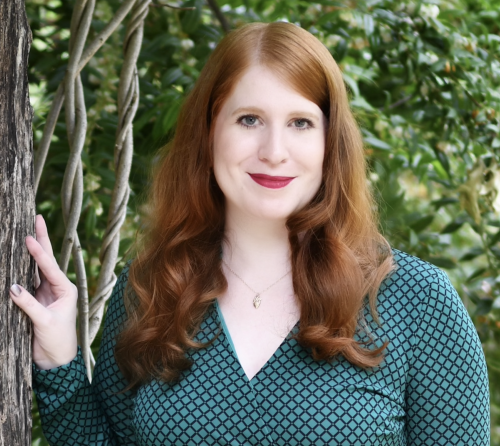Jennifer MacCormack, Ph.D., is a graduate of our Social Psychology Program with a secondary concentration in Quantitative Psychology in the Department of Psychology and Neuroscience. She is now an Assistant Professor in Social Psychology at the University of Virginia, where she directs the Virginia Affect and Interoception Laboratory (VAIL) and mentors students in UVA’s Social Psychology Program. Her lab broadly investigates how physiological states and systems (e.g., hunger) via the brain can shape social affective feelings, cognition, and behavior across the lifespan, with a special emphasis on the mediating roles of affect (e.g., arousal) and interoception (i.e., people’s sensitivity, awareness, and beliefs about their bodily sensations).
 In addition to research, Jenn teaches undergraduate courses (Intro to Social Psychology; Social Neuroscience) and graduate seminars (Social Psychophysiology, Research Methods in Social Psychology). She is also an affiliate faculty member of both UVA’s Program for Fundamental Neuroscience and UVA’s LIFE Academy. In the Program for Fundamental Neuroscience, she provides mentorship in social affective and health neuroscience. UVA’s LIFE Academy is part of the international LIFE Program consortium, wherein Jenn provides mentoring on socioemotional development and aging as pertains to health, psychophysiology, and neuroscience.
In addition to research, Jenn teaches undergraduate courses (Intro to Social Psychology; Social Neuroscience) and graduate seminars (Social Psychophysiology, Research Methods in Social Psychology). She is also an affiliate faculty member of both UVA’s Program for Fundamental Neuroscience and UVA’s LIFE Academy. In the Program for Fundamental Neuroscience, she provides mentorship in social affective and health neuroscience. UVA’s LIFE Academy is part of the international LIFE Program consortium, wherein Jenn provides mentoring on socioemotional development and aging as pertains to health, psychophysiology, and neuroscience.
Jenn says that, besides getting to do research on topics she loves, her favorite parts about being a professor are mentorship and collaboration. “It’s deeply rewarding to be able to work with people who are passionate and curious every day. Plus, there’s always more to learn and push yourself. This constant growth and collaborative spirit keep things motivating and never boring!”
When choosing UNC, Jenn says: “I wanted a PhD program and mentor where I could develop expertise in the diverse theoretical perspectives, methods, and data skills I needed to pursue my research questions. Social psychology provides a large umbrella for merging together multiple perspectives into new ideas and questions. UNC’s Social Psychology PhD Program exemplifies this innovative spirit while also offering a solid foundation in traditional Social Psychology fundamentals.” Jenn credits the rich interdisciplinary environment at Carolina created by the Social Psychology Program and her mentors Drs. Kristen Lindquist and Keely Muscatell, for helping develop her professional identity and research program.
Looking back, Jenn adds that Carolina provided her with the full spectrum of training she would need as a new professor—from not only how to conduct research and write scientific manuscripts, but also how to mentor, teach classes, secure research funding, and build a professional network. “With each passing year since I graduated, I become ever more grateful for the well-rounded training I received at Carolina. I was given all the tools I would need.”
For prospective and current graduate students, Jenn advises, “In my experience, Carolina and the Social Psychology Program offer all the right ingredients for an ‘ideal’ PhD experience. But even in an optimal environment, having strong social support and a self-directed growth mindset are critical. The positive relationships with my mentors and friends in the program and department made a huge difference in my PhD journey. I also learned that grad school is a time that can not only help transform you into an independent researcher and scholar, but that can transform and empower you as a person too.”
